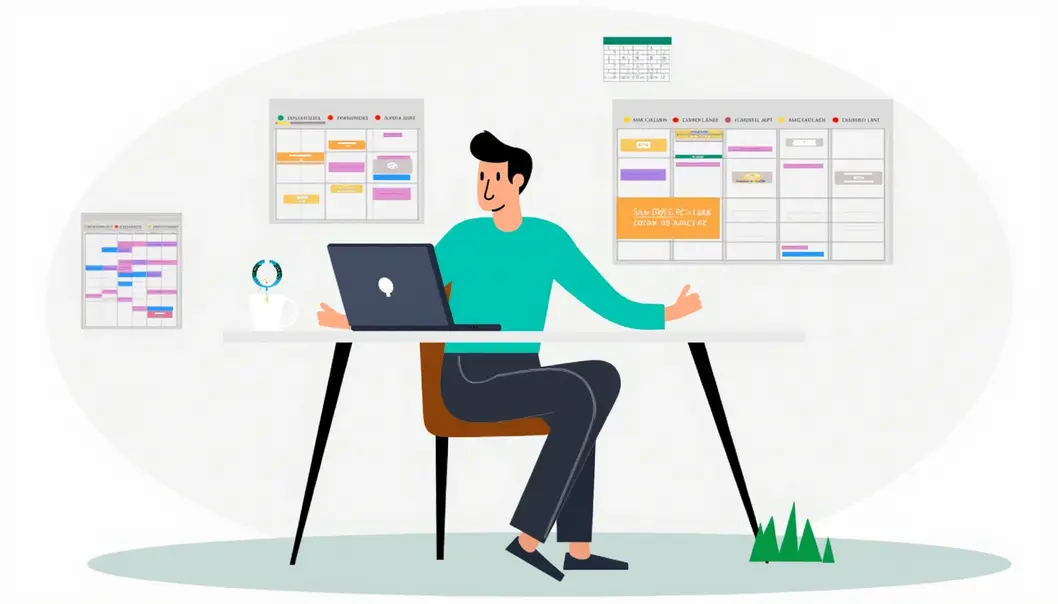Managing a freelance career often means juggling irregular income with the desire to enjoy life. As a freelancer, your budget can sometimes feel like a tightrope walk between indulging in fun experiences and sticking to frugality to ensure financial stability. It’s crucial to create a strategy that accommodates both needs without sacrificing quality of life. This article delves into effective strategies for balancing fun and frugality in your budget, specifically tailored for freelancers. We’ll discuss the importance of budgeting, prioritizing essential spending, and discovering free entertainment options. Additionally, investing in meaningful experiences while avoiding frugal fatigue will help maintain your productivity and passion. Finally, we’ll emphasize the need for regular budget adjustments to suit changing financial circumstances, ensuring you can enjoy life without jeopardizing your financial health.
Effective Strategies for Balancing Fun and Frugality in Your Budget
Balancing fun and frugality in your budget is achievable with thoughtful planning and intentional habits. Here’s a comprehensive guide to help you enjoy life while staying financially responsible.
Core Strategies for Balancing Fun and Frugality
Creating and sticking to a budget is the cornerstone of any effective financial plan. To begin, start tracking all your expenses. This vital first step will help you understand where your money is going and allow you to identify spending patterns. By knowing exactly how much you earn and what your regular expenses are, you create a realistic financial picture.
Next, it’s crucial to set clear savings goals. Whether saving for a vacation, a new gadget, or even just a rainy day, having specific targets ensures motivation. To make the budgeting process even smoother, allocate a portion of your budget specifically for entertainment or leisure activities—let’s call this your “fun budget.” This strategy ensures that you can enjoy yourself without guilt or the fear of overspending.
The next step is prioritizing what matters most. Value-based spending allows you to focus your financial efforts on experiences or items that genuinely bring you joy rather than making impulsive purchases. Consider employing the 30-day rule: if you are tempted to buy something non-essential, wait 30 days to reconsider. Often, this pause helps you differentiate between mere desire and real necessity.
In addition, implementing ‘no-buy days’ can effectively reset your spending habits. Designate one day each week where you commit to spending nothing at all. This practice not only curbs unnecessary expenses but also heightens your mindfulness concerning money management.
Smart Shopping Tactics
When making purchases, timing can greatly impact your budget. For significant items, try to time your purchases around annual sales events like Black Friday or Amazon Prime Day. Planning your spending around these sales will help you capitalize on significant discounts.
Additionally, utilizing price tracking tools can ensure you get the best deals. Browser extensions such as Camelizer for Amazon or Honey for coupon applications automatically help you snag lower prices or discounts. If you ever happen to leave items in your online shopping cart, hold off—sometimes retailers will send you special discount codes as an incentive to complete your purchase.
Enjoy Low-Cost Activities
Fun doesn’t always have to come with a hefty price tag. Explore your area for free or inexpensive local events. Parks, beaches, and museums often host free admission days or community events that provide ample entertainment. Not only do these activities enrich your leisure time, but they also help you connect with your community.
Hosting gatherings at home can be another excellent way to enjoy quality time without breaking the bank. Organize movie nights, potluck dinners, or game nights with friends—these options offer fun while reducing the cost associated with dining out or clubbing.
Furthermore, if fitness is on your agenda, consider streaming classes at home. There are numerous free or low-cost online resources available to help you stay active without committing to an expensive gym membership.
Dining Out Wisely
Dining out can significantly impact your monthly budget if left unchecked. However, enjoying meals at restaurants doesn’t have to spell financial doom. One of the simplest ways to trim your dining expenses is by taking advantage of happy hour deals. Many restaurants provide happy hour specials during off-peak hours, meaning you can enjoy great food and drinks at a fraction of the normal price.
Another technique involves planning your restaurant visits based on your budget. Consider dining out once a week or selecting less expensive venues which maintain a fun atmosphere. Use these outings as rewards for sticking to your budget, incorporating a ‘treat yourself’ mentality while still being frugal.
Invest in Experiences
While it may seem contradictory, investing in experiences often yields greater happiness than material possessions. Spending money on activities like travel, courses for personal development, or workshops for new skills can provide lasting satisfaction and unforgettable memories. These experiences not only enrich your life but also often become invaluable learning opportunities, solidifying their worth far beyond initial expenditures.
Curbing Frugal Fatigue
Even the most dedicated budgeters might experience what’s known as frugal fatigue. This occurs when the continuous effort to save leads to burnout, causing individuals to disregard their budget altogether. It’s essential to maintain a healthy balance between saving and enjoying life. Occasional indulgences—like that favorite dessert, a day trip, or investing in a hobby—can reinstate joy in your financial journey. The key is to ensure these indulgences don’t veer into carelessness but remain calculated decisions within your budget framework.
Adaptability in Budgeting
Life circumstances can shift rapidly, affecting financial situations. The ability to adapt and recalibrate your budget as needed will help to maintain financial balance. During periods of financial stress, focus more on saving. Conversely, when your finances stabilize or improve, feel free to increase your allocation for leisure activities, ensuring that your budget matches your current life circumstances.
Consistent Monitoring and Adjustment
Lastly, the work doesn’t stop after creating a budget. Regularly review your budget to ensure it aligns with your goals and current financial situation. Lifestyle changes, unexpected expenses, or new income sources mean that flexibility in budgeting is crucial. Adjust your spending habits as needed to maintain an optimal balance between frugality and enjoyment.
By implementing these strategies, you enable yourself to successfully balance fun and frugality within your budget, ensuring that you can savor life while managing your finances responsibly. Remember, it’s not about cutting out fun entirely; it’s about being intentional and mindful of how your spending aligns with your values and life goals.
Final thoughts
Finding the sweet spot between fun and frugality is essential for freelancers. By clearly defining priorities, utilizing free resources, and remaining adaptable, you can cultivate a budget that allows for enjoyment without compromising your financial future. Remember to embrace small pleasures and adjust your approach as your circumstances evolve to maintain this delicate balance.
Subscribe for more tips on budgeting and saving
Learn more: https://savemawallet.com
About us
Download our free guide to learn how to create a precise budget that allows for both enjoyment and savings, tailored to freelancers.


Leave a Reply
You must be logged in to post a comment.